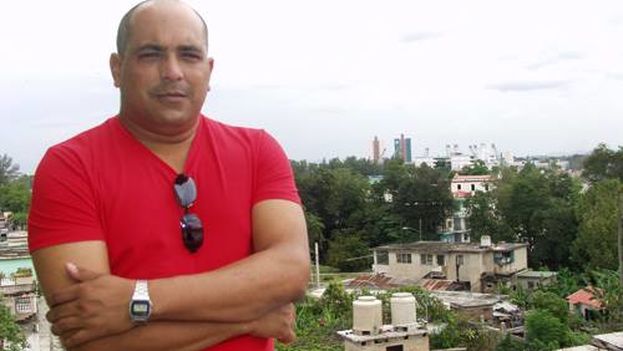
![]() 14ymedio, Mario Penton, Miami, 29 September 2016 – Today the National Ethics Commission of the Cuban Journalists Union (UPEC) will finally hear the appeal filed by Cuban journalist Jose Ramírez Pantoja, who was fired from his job at Radio Holguin last August.
14ymedio, Mario Penton, Miami, 29 September 2016 – Today the National Ethics Commission of the Cuban Journalists Union (UPEC) will finally hear the appeal filed by Cuban journalist Jose Ramírez Pantoja, who was fired from his job at Radio Holguin last August.
Ramírez Pantoja was accused at that time of republishing on his personal blog, Verdadecuba, comments from Karina Brown, vice president of the official newspaper Granma, who had spoken publicly about the country’s situation and the possible outbreak of another ‘Maleconazo‘ – a 1994 protest that holds the record for the largest street* protest in the 60 years since the Castro brothers took over the Cuban government.
The trial was scheduled for last week, but for reasons that were not clarified by the Court of Ethics it was postponed. After the hearing, which will pass “a moral judgment on the performance of the journalist,” according to a source who spoke with this newspaper, the commission will have 10 days to issue a ruling.
According to UPEC’s on-line site, cubaperiodistas.cu, Luis Sexto, president of UPEC’s National Ethics Commission, traveled to the eastern province on 7 September to conduct an “in person” interview with Ramírez Pantoja. On that occasion, Sexto stated that despite the Provincial Ethical Commission’s having prepared a “substantial record” on the fired journalist, “the National Commission receives, analyzes, supervises, authorizes and modifies the measure taken at the provincial level.”
The president of the national commission said he was “encouraged by the spirit of justice inspired by UPEC and its Code of Ethics.” He also said he was traveling to Holguin “in a constructive spirit” and not as a “destroyer.”
Speaking to 14ymedio, Ramírez Pantoja said he did not want to make a political show of his case. However, his dismissal opened a Pandora’s Box and hardened the positions between those who defend swashbuckling journalism mentored by the Communist Party and information professionals seeking more freedoms.
Since the ruling, Aixa Hevia, UPEC’s vice president, accused Ramirez Pantoja of trying to position himself to move to the Miami media, and hinted at the possibility of expelling from the country Uruguayan journalist Fernando Ravsberg, a known sympathizer of the Cuban Revolution, who runs the alternative blog Letters from Cuba and who came to the defense of the fired professional.
The official press also lashed out in recent weeks against those media “who want to present themselves as alternatives,” in reference to the multitude of alternative sites to the official press that have arisen, especially on the initiative of young journalists who cannot find a place in the old areas controlled by the government, or who seek to augment their meager incomes. Iroel Sanchez, one of the journalists who staunchly defends communist orthodoxy, challenged professionals who in a “Cuban medium” paid homage to Che and shortly afterwards disrespected him “where they pay better.”
According to Ramirez Pantoja, the injustice committed against him led him to consider the need for a journalism that is more serious and committed to the needs of the people.
The journalist expressed his appreciation through social networks to people who have supported him in the process. His presence on social networks, however, has waned since he lost the privilege of connectivity that is granted to some official Cuban journalists.
During the two months of the impasse, waiting, the reporter has had to make a living through self-employment. He works “loading the Weekly Packet onto flash drives,” as confirmed by source close to him, and “he has also been working with a the company Codanza, on the production of the third North Atlantic Vladimer Malakhov Grand Prix Dance Contest.”
Ramirez Pantoja’s hearing takes place within a few hours of that of a complaint against another former official journalist, Maykel Gonzalez Vivero, who was expelled from Radio Sagua in Villa Clara “for collaborating with private media.”
If he loses in front of the National Ethics Commission, Ramirez Pantoja can appeal to the UPEC Congress or request an appeal to the Supreme Court.
*Translator’s note: Arguably the largest protest of all kinds by Cubans against their government is that of the hundreds of thousands of Cubans who have left the country.
